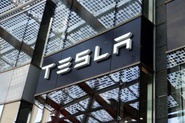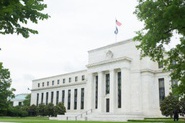The First Gift of 2020
Rodney Johnson | January 02, 2020 | For Christmas, did you get anything that weighed 4,500 pounds and cost more than $50,000? Did someone surprise you with a car or truck you didn't know was coming, walking you out to the driveway and handing you the keys? I know it happens, I'm just not sure it occurs often enough to warrant the 8 billion car commercials I see on television every holiday season. But this year, instead of being annoyed by car ads, I saw them in a new light, sort of like watching an entire industry on the verge of committing corporate suicide. It brought to mind the old saying, "a train wreck in slow motion is still a train wreck." On the face of it, auto companies are hawking SUVs and trucks, with just high-end companies promoting sedans. I know those vehicles bring in beaucoup profits, so it makes sense that they push these vehicles. But behind the scenes, they're doing something else… shifting to electric vehicles (EVs). Volkswagen is the largest car company in the world, selling roughly 11 million units per year. The firm was slammed by the emissions scandal, which cost it $30 billion. Now Volkswagen is investing $90 billion over the next decade in EVs, and plans to convert 25% of its offerings to electric power by 2025, a mere five years away. Daimler Benz will invest $42 billion in EVs, and Ford has committed $11 billion to the cause. General Motors is making its own investments, and plans to make all Cadillacs electric. Who will buy them? Tesla remains the test case for selling such cars on a voluntary basis, and the record isn't convincing. The company probably sold 360,000 cars in 2019, which isn't too shabby for a new brand, but it doesn't turn a profit, makes significant revenue from selling emission credits, and is watching sales of its high-end Models S and X drop like a rock. Nothing about that screams "unmet demand," and yet competing car companies are jumping in with dozens of new EV models and spending between $100 billion and $200 billion to make it happen. They're not drawn by Tesla's unlimited success; they're responding to regulations in the EU, China, and even North America. But just because regulators make you build EVs doesn't mean consumers will want them, and certainly doesn't mean consumers will pay high prices for them. All of this will weigh on the automakers in 2020 and beyond, and the most pressure should fall squarely on Tesla. The company made a cool car in 2012, but the Model S still looks like it did in 2012. The model X is fine, but not flying off the showroom floor, and the Model 3 earns the company little profit. The Cyber Truck won't be in production for at least another year, which leaves Tesla banking on the Model Y. Tesla trades at about $420, with a negative P/E of -4.77. The company needs to sell an awful lot of its new model at big prices to earn a profit that will support the stock at $420. If Tesla earned $1 billion, it would be roughly $5.55 earnings per share. At that level, the company would need a P/E of 75 to sustain a stock price near $420. Apple carries a P/E of 24.5, while Ford and GM have P/E's of 23 and 6, respectively. Obviously, investors are placing speculative bets that Tesla can do something magical with its car business, but I think that time has passed. While the company built out production facilities, and even recently secured $1.6 billion to build its factory in China where it just rolled out its first vehicle, competitors caught up. Those willing to spend $60,000 to $130,000 on an electric vehicle can buy a vehicle from Porsche, Jaguar, Audi, and a number of other producers. And soon, those wanting to spend a little less will have their choice of vehicles from GM and Volkswagen. Soon, Tesla won't be special, and it still won't earn much profit. To kick off 2020, consider a bearish position on a darling stock, buying puts on Tesla. As often mention to Boom & Bust subscribers, I don't short stocks because I like to limit my potential losses, so a put option that expires in nine months or so is where I'd look. If I'm wrong, then I've lost a little money betting against a company that burns cash has looming competition. If I'm right, then I've given you your first investment gift of 2020. 
Rodney Johnson This Week in Economy & Markets...  For Christmas, did you get anything that weighed 4,500 pounds and cost more than $50,000? Did someone surprise you with a car or truck you didn't know was coming, walking you out to the driveway and handing you the keys? I know it happens, I'm just not sure it occurs often enough to warrant the... For Christmas, did you get anything that weighed 4,500 pounds and cost more than $50,000? Did someone surprise you with a car or truck you didn't know was coming, walking you out to the driveway and handing you the keys? I know it happens, I'm just not sure it occurs often enough to warrant the...
 Credit Suisse just came out with their excellent Global Wealth Report for 2019. I will likely do a more in-depth report in The Leading Edge earlier in the New Year. The focus is on wealth, but the income statistics are even more illuminating in this time of peak inequality. I especially like their comparisons per... Credit Suisse just came out with their excellent Global Wealth Report for 2019. I will likely do a more in-depth report in The Leading Edge earlier in the New Year. The focus is on wealth, but the income statistics are even more illuminating in this time of peak inequality. I especially like their comparisons per...
 In the spirit of the New Year, I'm reviving my theme from last year – crazy possibilities. These are the "what if's" and "why not's?" that Americans live for. Think of them in the same light as that promising biotech penny stock you bought on your brother-in-law's recommendation that hasn't quite panned out, or the... In the spirit of the New Year, I'm reviving my theme from last year – crazy possibilities. These are the "what if's" and "why not's?" that Americans live for. Think of them in the same light as that promising biotech penny stock you bought on your brother-in-law's recommendation that hasn't quite panned out, or the...
 I knew this repo crisis would require more injections, but it wasn't easy to get clear data on just how many it would take. I was trying to identify how much money has gone into propping up the repo or overnight bank lending market since its sudden spike in rates to 10% signaled a crisis... I knew this repo crisis would require more injections, but it wasn't easy to get clear data on just how many it would take. I was trying to identify how much money has gone into propping up the repo or overnight bank lending market since its sudden spike in rates to 10% signaled a crisis...
|
No comments:
Post a Comment